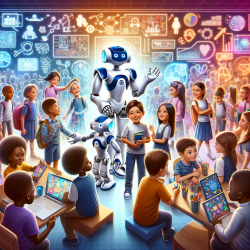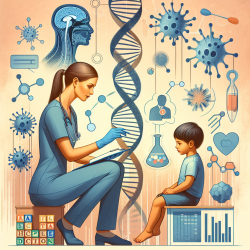As a practitioner deeply invested in the well-being and development of children, the introduction of social robots in education presents both opportunities and challenges. A recent study, "Do Robotic Tutors Compromise the Social-Emotional Development of Children?" by Smakman et al., provides insightful findings that can help us navigate this emerging field.
The study interviewed teachers who have applied social robots in their day-to-day educational practice. Here are some key takeaways and practical tips for improving your skills by implementing the outcomes of this research.
Positive Impacts of Social Robots
Teachers reported several positive effects of social robots on children's social-emotional development, including:
- Increased Self-Confidence: Children who are shy or socially less capable can become more confident through interactions with robots.
- Helping Other Children: Assigning roles like "robot expert" to children can stimulate social interaction and peer support.
- Ability to Express Oneself: Robots can encourage children to open up about their feelings, fostering emotional competence.
- Ability to Be Patient and Listen: Robots' structured interactions can teach children patience and active listening.
- Curiosity Stimulation: The novelty and interactivity of robots can make learning more engaging for children.
Best Practices for Using Social Robots
To ensure these positive outcomes, consider the following best practices:
- Apply When Needed: Use robots as an addition to, not a replacement for, teachers. Apply them for specific aims to maintain their novelty and effectiveness.
- Teacher Involvement: Always involve teachers in robot interactions to monitor and guide the process, ensuring balanced human-robot interaction.
- Proper Introduction: Clearly explain to children what a robot is and what it will do before starting interactions.
- Small Groups: Use robots in small group settings to encourage peer interaction and prevent social isolation.
- Team Effort and Mindset: Ensure the entire teaching team, including school management, supports the use of robots. Appoint a "robot ambassador" to facilitate implementation.
Considerations for Children with Special Needs
Children with special needs, such as those with autism spectrum disorder (ASD), ADHD, or social anxiety, can particularly benefit from social robots. However, it's crucial to monitor their interactions to prevent over-attachment, which could lead to reduced human contact or emotional distress when the robot is not around.
Future Research and Ethical Considerations
While the current state of technology shows promising results, ethical concerns such as privacy, security, and increased teacher workload need further exploration. Future research should focus on these areas to ensure a safe and effective educational environment.
For a deeper understanding, I encourage you to read the original research paper: Do Robotic Tutors Compromise the Social-Emotional Development of Children?










